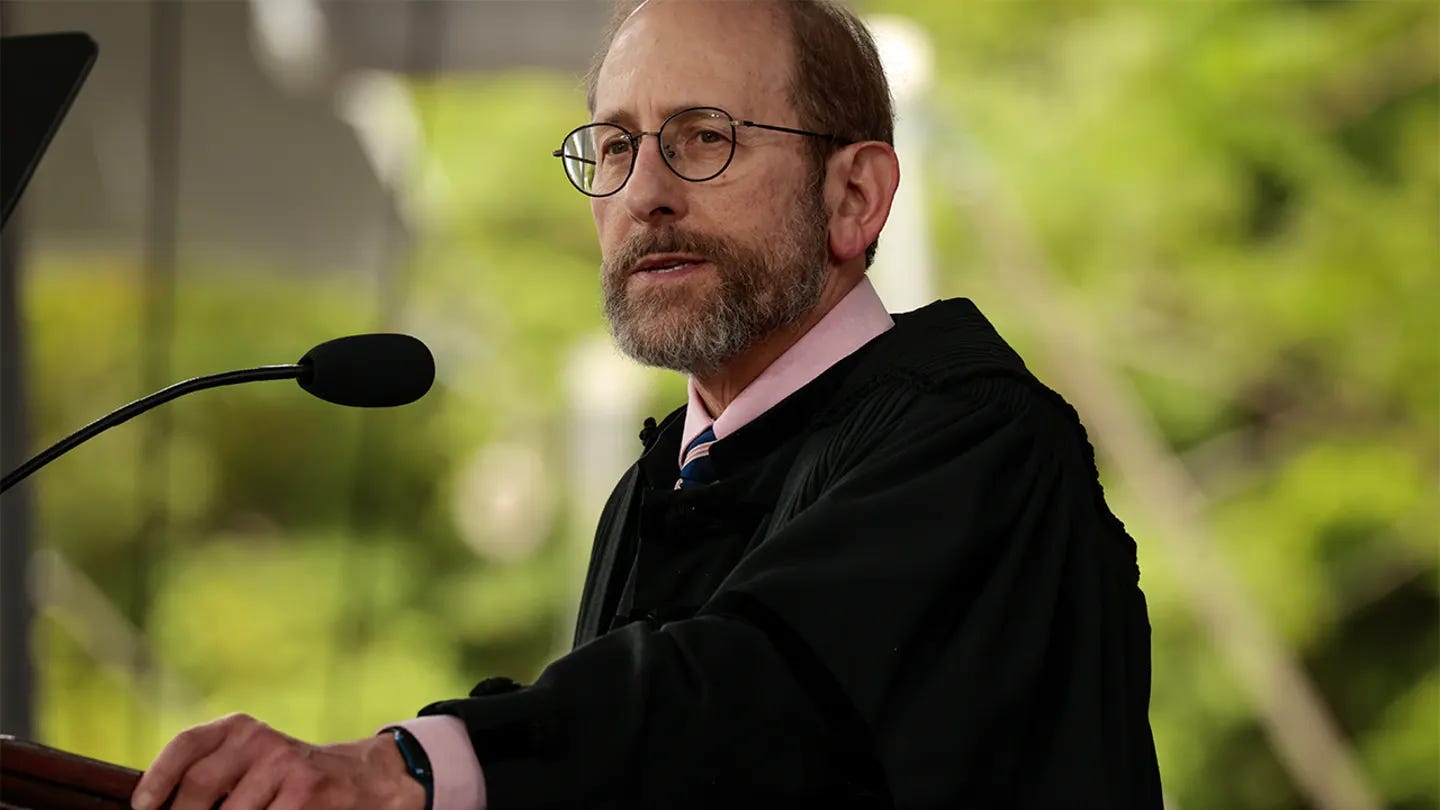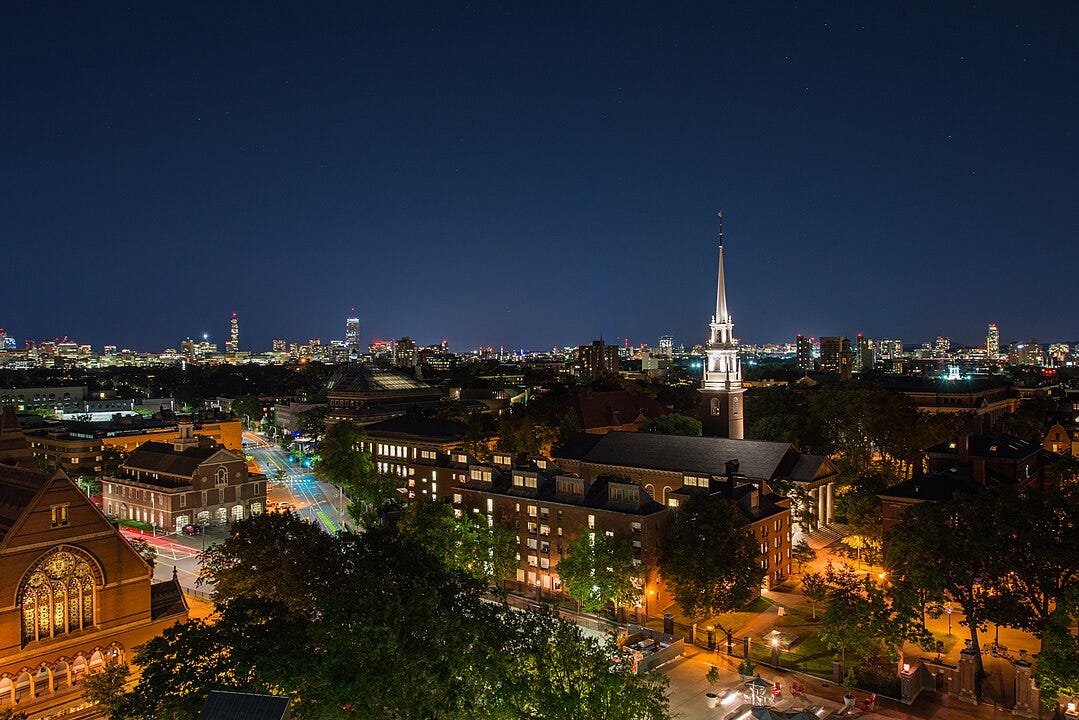Trump Administration’s Ban on Harvard’s International Students Sparks Legal Firestorm, Federal Judge Halts Policy
“It’s about whether American universities can remain places of free inquiry and global engagement, or whether they’ll be forced to choose between their values and their existence.”
The Trump administration’s surprise decision to revoke Harvard University’s ability to enroll international students has ignited a national outcry, drawing fierce condemnation from academic leaders and a swift legal response from Harvard itself. The move, which affects more than 6,800 foreign students at the prestigious institution, was temporarily blocked Friday by a federal judge as the university challenges the ban in court.
(Craig F. Walker/The Boston Globe via Getty Images)
The U.S. Department of Homeland Security (DHS) announced the revocation earlier this week, citing what it called an "unsafe campus environment" and Harvard’s alleged failure to comply with federal information requests concerning student visa holders. DHS Secretary Kristi Noem accused the university of harboring "anti-American, pro-terrorist agitators" and claimed Harvard “coordinated with the Chinese Communist Party” by hosting and training members of a Chinese paramilitary group as recently as 2024.
“Harvard provided an insufficient, incomplete, and unacceptable response to lawful requests for records,” Noem said, defending the department’s authority to strip Harvard of its participation in the Student and Exchange Visitor Program (SEVP). “Enrollment of foreign nationals is a privilege, not a right.”
Harvard University has pushed back forcefully, calling the move unlawful, retaliatory, and a direct attack on academic freedom. “We condemn this unlawful and unwarranted action,” said Harvard President Alan Garber in a sharply worded statement. “It imperils the futures of thousands of students and scholars across Harvard and serves as a warning to countless others who may now question whether America remains a safe and welcoming place to study and learn.”
Harvard filed a federal lawsuit arguing the revocation violates the First Amendment, the Due Process Clause, and the Administrative Procedure Act. “This is a blatant case of government retaliation against a university that refused to cede control of its governance, its curriculum, or the ideology of its faculty and students,” the complaint states.
The decision has thrown the futures of thousands of students into chaos. Meghana Sanagaram, a graduate student from Canada, expressed anguish at the possibility of being forced to leave. “It’s disheartening to think all those nights I stayed up working hard for this dream may have been for nothing—and not because of anything I did,” she told CBC News.
Marco Avina, a PhD candidate from Montreal, said he’s unsure whether he’ll be allowed to return to the U.S. to continue his studies. “Everything’s up in the air,” he said. “It’s terrifying.”
The impact has also reached international headlines, with The Guardian reporting that Princess Elisabeth of Belgium, who is studying public policy at Harvard and is in line for the Belgian throne, could be affected. Canadian Prime Minister Mark Carney and his daughter are also reportedly current students or alumni.
In response to Harvard’s lawsuit, U.S. District Judge Allison Burroughs issued a temporary restraining order Friday evening, blocking implementation of the policy “to preserve the status quo while the case proceeds.” The ruling offers a brief reprieve to students and faculty as the legal battle unfolds.
The move has drawn alarm from across the higher education landscape. Ted Mitchell, president of the American Council on Education, warned the action would have far-reaching consequences. “This sends a chilling message to international students: the United States is no longer a reliable destination for education,” he said.
The Foundation for Individual Rights and Expression (FIRE) also denounced the DHS demands for student protest footage and disciplinary records, calling the policy a “sweeping surveillance expedition that tramples on protected speech.”
Harvard revealed that it had already been preparing for possible disruption by advising international students to accept backup admission offers at other institutions—a sign of escalating tensions between the university and the administration.
While the temporary court order halts immediate enforcement, the lawsuit promises to be a closely watched battle over the rights of educational institutions and the future of international education in America.
“This isn’t just about Harvard,” Garber said. “It’s about whether American universities can remain places of free inquiry and global engagement, or whether they’ll be forced to choose between their values and their existence.”
(Harvard Univeristy campus, image from Wikipedia)
The outcome of the case could have profound implications for universities nationwide—and for the international students who have long considered the U.S. the premier destination for higher education.





